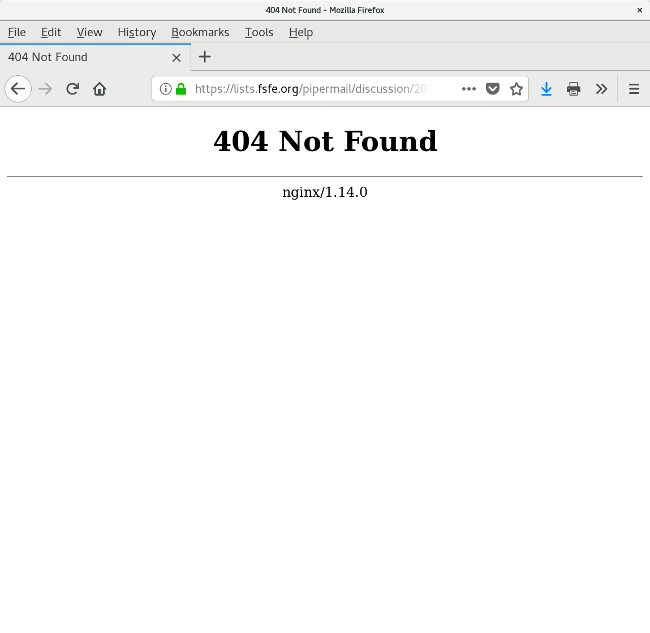What is the difference between moderation and censorship?
FSFE fellows recently started discussing my blog posts about Who were the fellowship? and An FSFE Fellowship Representative's dilemma.
Fellows making posts in support of reform have reported their emails were rejected. Some fellows had CC'd me on their posts to the list and these posts never appeared publicly. These are some examples of responses received by a fellow trying to post on the list:
The list moderation team decided now to put your email address on moderation for one month. This is not censorship.
One fellow forwarded me a rejected message to look at. It isn't obscene, doesn't attack anybody and doesn't violate the code of conduct. The fellow writes:
+1 for somebody to answer the original questions with real answers
-1 for more character assassination
Censors moderators responded to that fellow:
This message is in constructive and unsuited for a public discussion list.
Why would moderators block something like that? In the same thread, they allowed some very personal attack messages in favour of existing management.
Moderation + Bias = Censorship
Even links to the public list archives are giving errors and people are joking that they will only work again after the censors PR team change all the previous emails to comply with the censorship communications policy exposed in my last blog.
Fellows have started noticing that the blog of their representative is not being syndicated on Planet FSFE any more.
Some people complained that my last blog didn't provide evidence to justify my concerns about censorship. I'd like to thank FSFE management for helping me respond to that concern so conclusively with these heavy-handed actions against the community over the last 48 hours.
The collapse of the fellowship described in my earlier blog has been caused by FSFE management decisions. The solutions need to come from the grass roots. A totalitarian crackdown on all communications is a great way to make sure that never happens.
FSFE claims to be a representative of the free software community in Europe. Does this behaviour reflect how other communities operate? How successful would other communities be if they suffocated ideas in this manner?
This is what people see right now trying to follow links to the main FSFE Discussion list archive:
